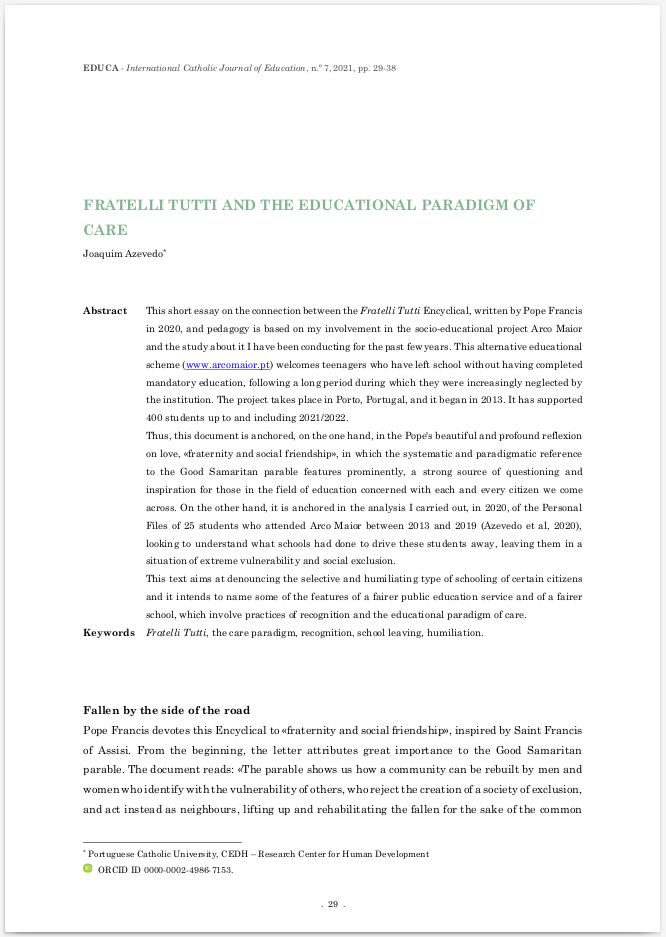Fratelli tutti and the educational paradigm of care
Main Article Content
Abstract
This short essay on the connection between the Fratelli Tutti Encyclical, written by Pope Francis in 2020, and pedagogy is based on my involvement in the socio-educational project Arco Maior and the study about it I have been conducting for the past few years. This alternative educational scheme (www.arcomaior.pt) welcomes teenagers who have left school without having completed mandatory education, following a long period during which they were increasingly neglected by the institution. The project takes place in Porto, Portugal, and it began in 2013. It has supported 400 students up to and including 2021/2022.
Thus, this document is anchored, on the one hand, in the Pope's beautiful and profound reflexion on love, «fraternity and social friendship», in which the systematic and paradigmatic reference to the Good Samaritan parable features prominently, a strong source of questioning and inspiration for those in the field of education concerned with each and every citizen we come across. On the other hand, it is anchored in the analysis I carried out, in 2020, of the Personal Files of 25 students who attended Arco Maior between 2013 and 2019 (Azevedo et al, 2020), looking to understand what schools had done to drive these students away, leaving them in a situation of extreme vulnerability and social exclusion. This text aims at denouncing the selective and humiliating type of schooling of certain citizens and it intends to name some of the features of a fairer public education service and of a fairer school, which involve practices of recognition and the educational paradigm of care.

